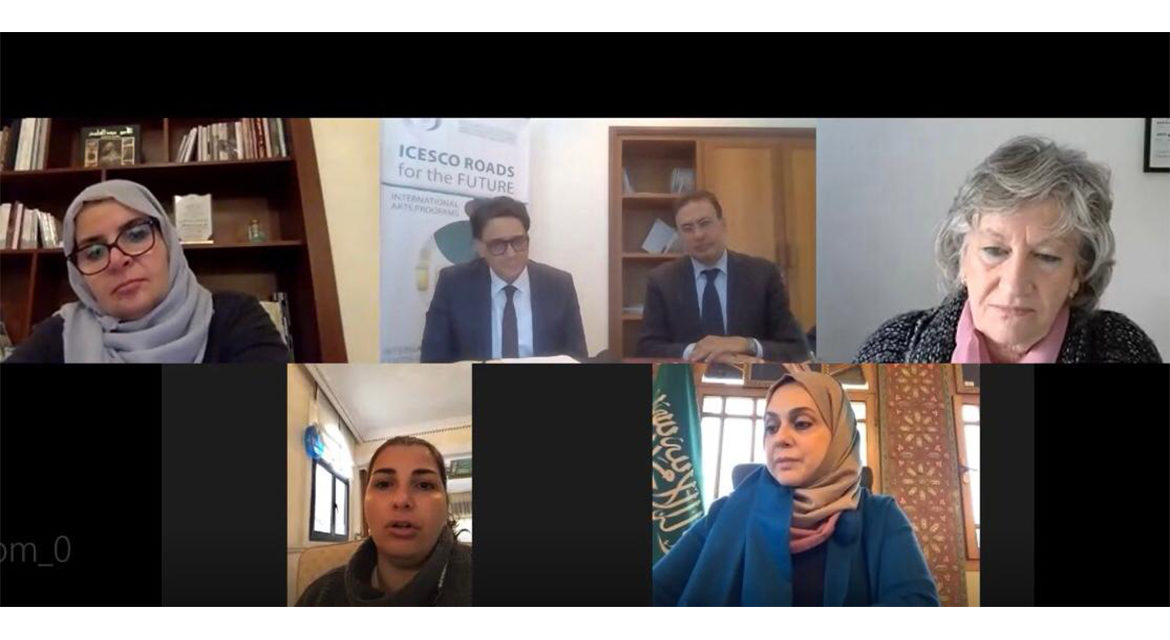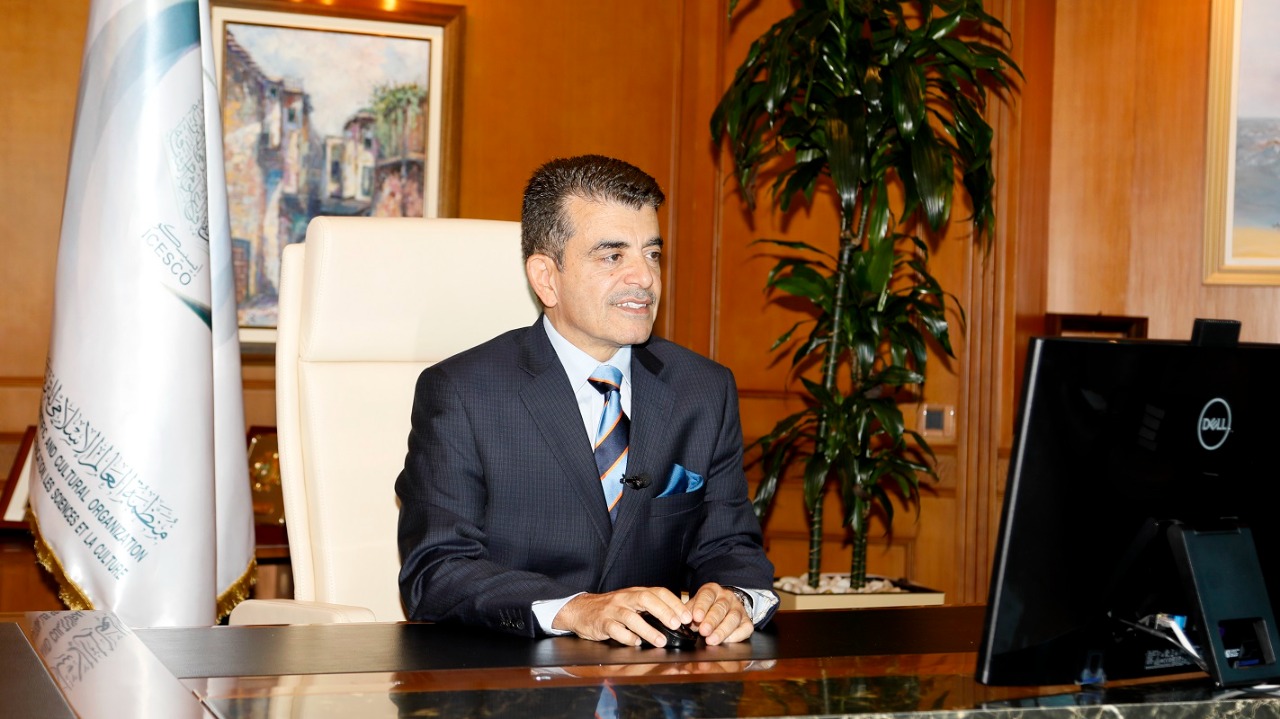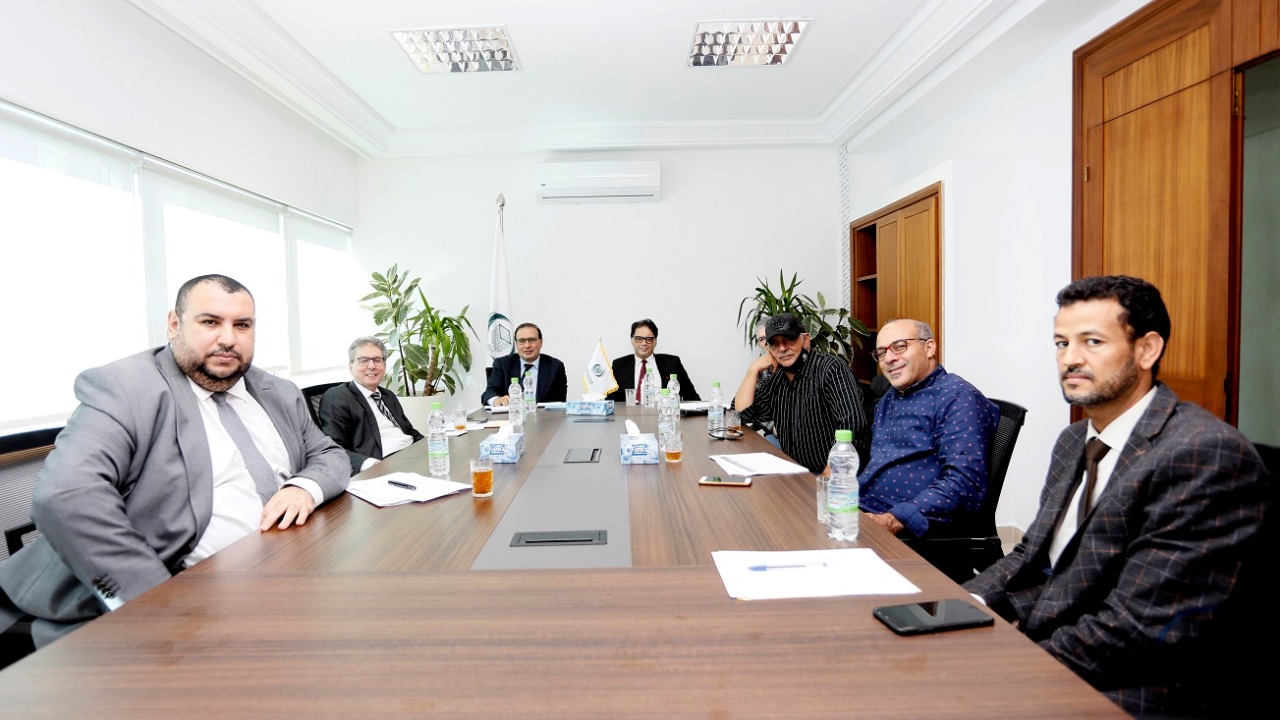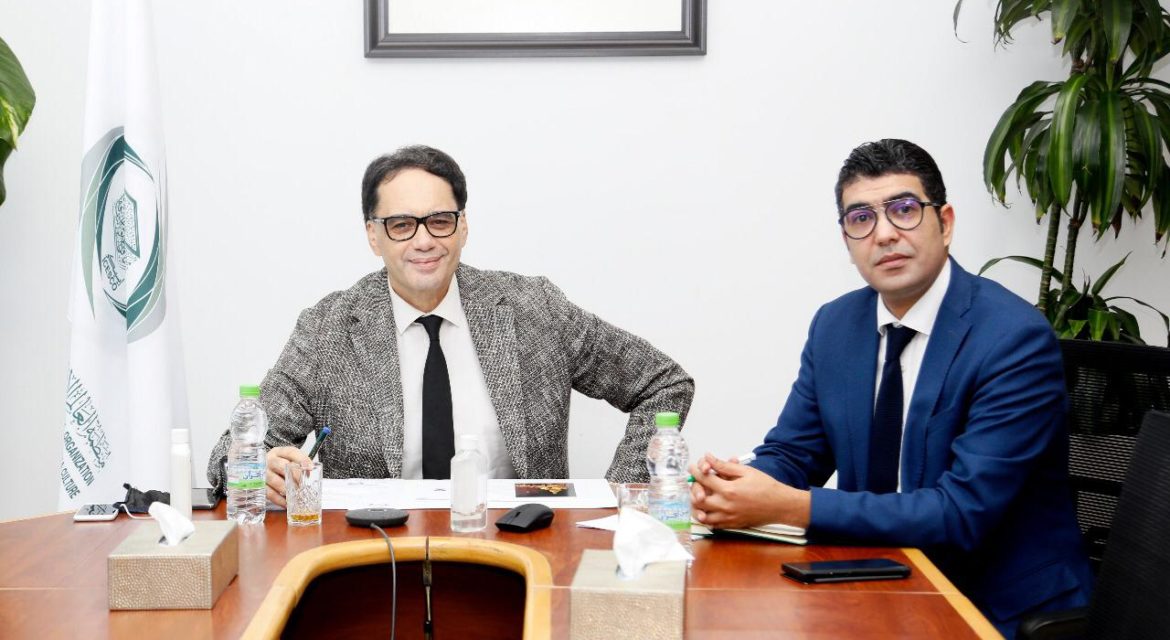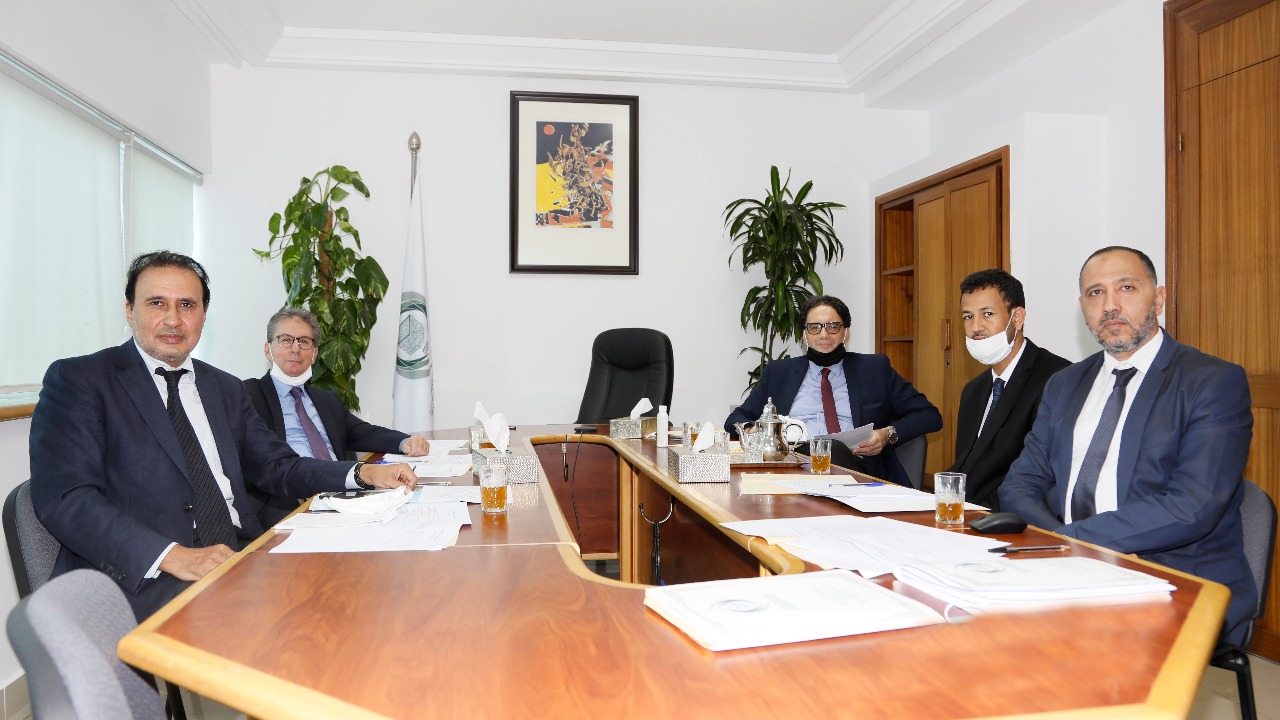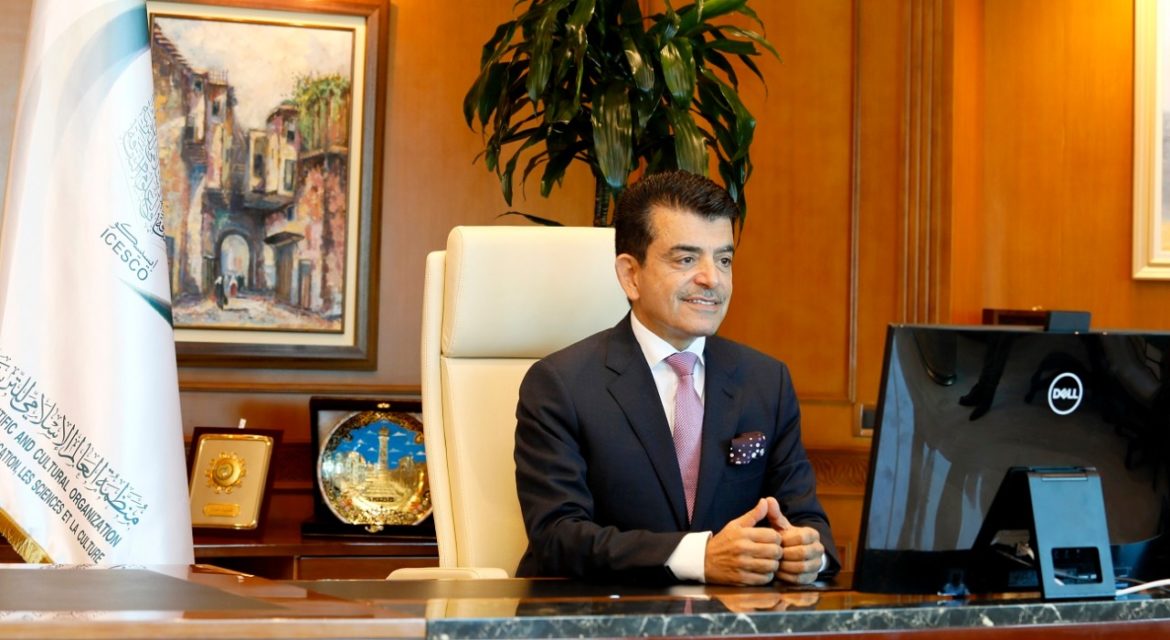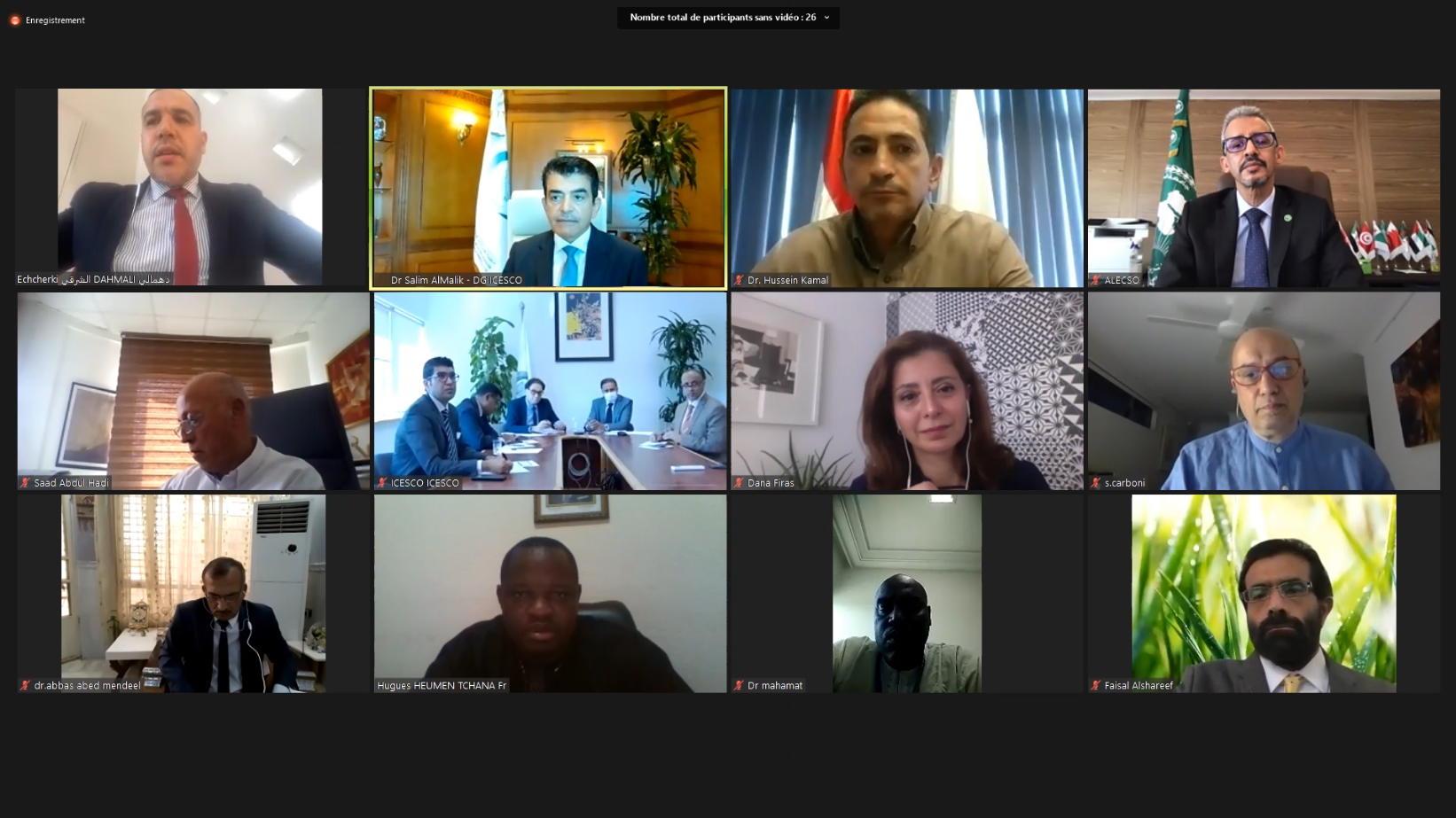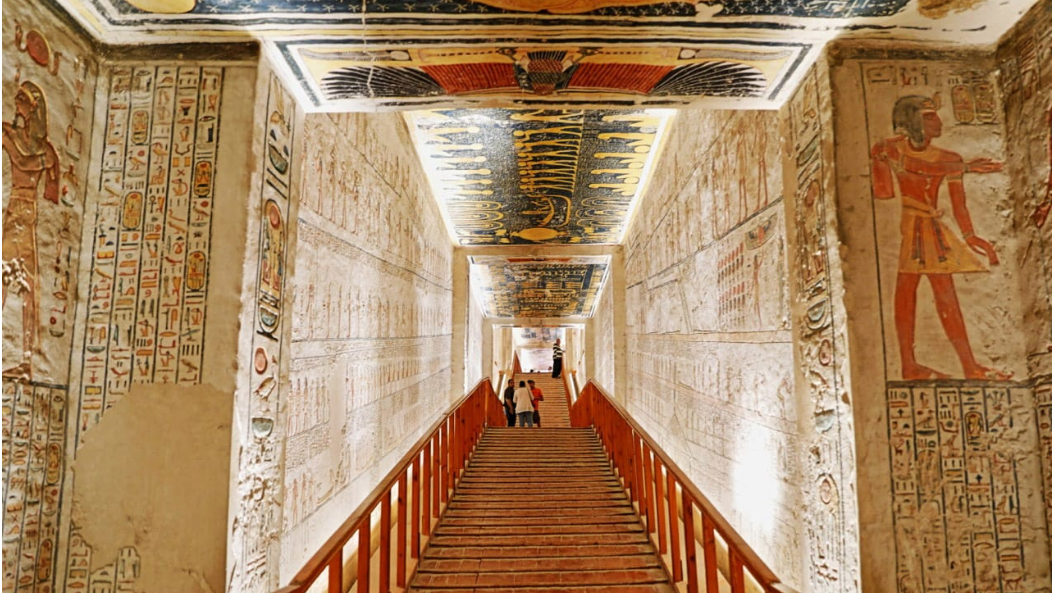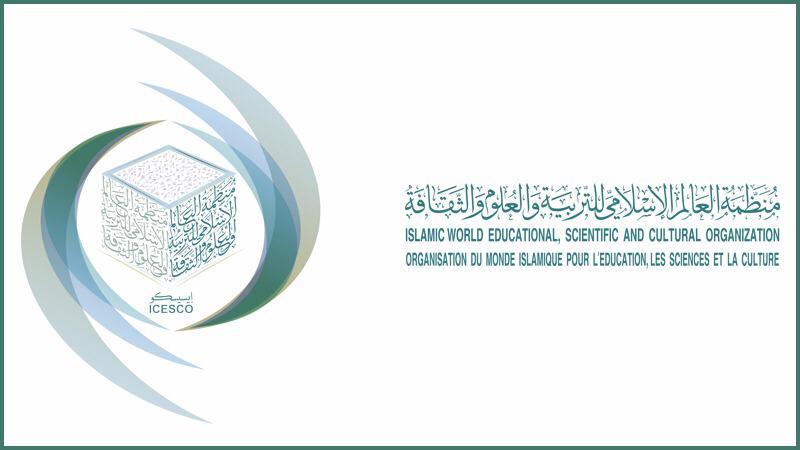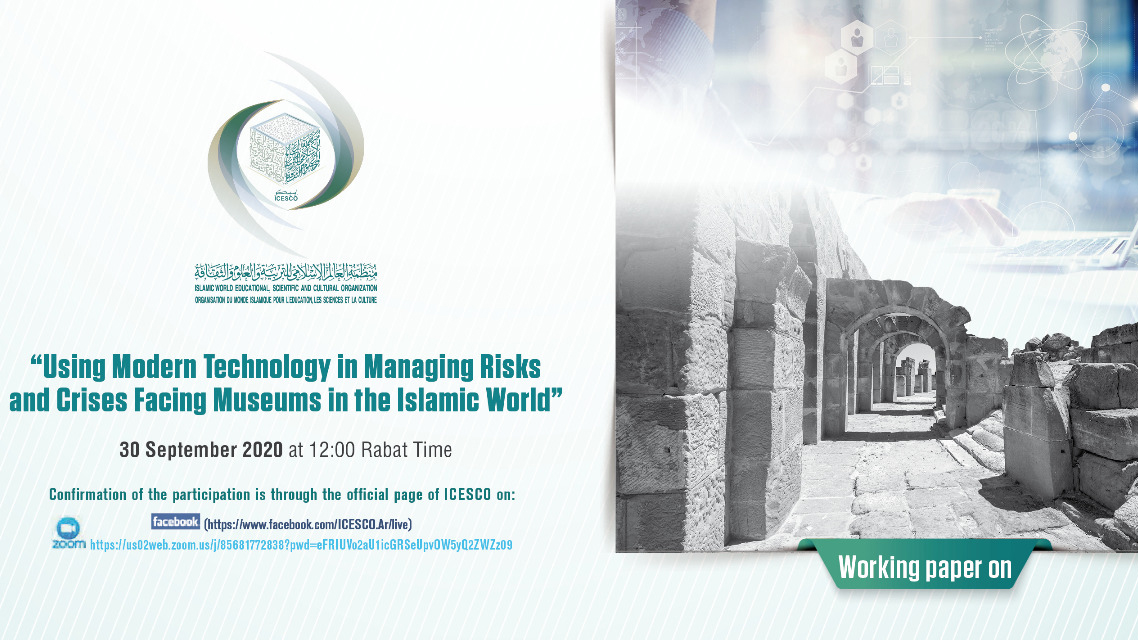A delegation from the Islamic World Educational, Scientific, and Cultural Organization (ICESCO) met on Wednesday, February 6, in a videoconference with a delegation of the Diplomatic Club for Charity of Rabat to explore cooperation in areas of mutual interest.
Dr. Mohamed Zinelabidine, Director of the Sector of Culture and Communication, headed the delegation, which comprised Dr. Abdelilah Benarafa, Advisor to the Director-General; Ms. Rime Jirari, Head of the Division of Organizations and Bodies at the Sector of Cooperation and Partnerships; and Mr. Bilel Chebbi, Expert at the Sector of Culture and Communication.
Ms. Zeina Barakat, the wife of the Ambassador of the Lebanese Republic to Rabat, President of the Club, presided over the delegation of the Club, with the participation of Ms. Nadia Al Hadithi, wife of the Ambassador of Saudi Arabia to Morocco; Dr. Yousra Al Jazairy, Acting Cultural Attaché at Saudi Arabia in Morocco; and Ms. Yolanda Jah, Cultural Officer.
During the meeting, the parties agreed to jointly translate the book “Flavors of the World” into Arabic, to be published by the end of February 2021. The two parties discussed the inscription of Ramadan table and its associated rituals on the Islamic World Heritage List. The participants also proposed publishing a book on the important role of Ramadan table and its relevant values and principles in entrenching respect for cultural diversity and promoting coexistence values. They examined cooperation to submit the inscription file on the Representative List of the Intangible Heritage.
At the close of the meeting, the Club’s members reiterated their thanks to ICESCO for its unwavering support and efforts to protect cultural heritage in the Islamic world.

